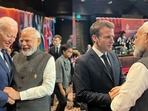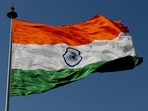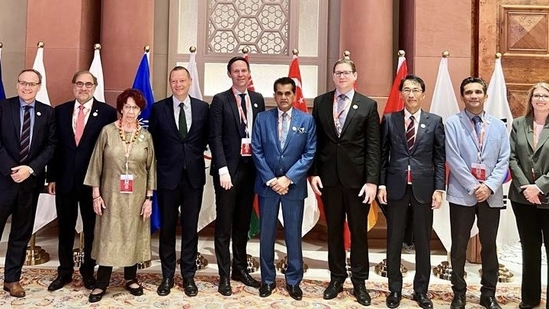G20 Summit
- Accelerated Growth
- Green Development
- Women-led Development
World Bank lauds India's digital infra impact: 'Five-decade journey in 6 years'

‘Digital India Experience Zone’ to be set up at G20 Summit: A sneak peek here

PM Modi to host bilaterals with Biden, Macron and Sheikh Hasina

SC turns 'ordinary litigant' in front of Delhi HC for pro-green initiative

Pesticide-free Ganga to transform Banaras into a green city: NGT judicial member

New G20 park in Delhi features sculptures of member states’ national animals

Cultural corridor in Delhi’s Bharat Mandapam to show heritage from G20 nations

Rising food, fuel and fertiliser inflation may figure in the G20 summ next month

WCD min criticises Delhi, Bengal govts over non-implementation women empowerment schemes

G20 Timeline
About G20
The G20, or Group of Twenty, is a forum consisting of 19 countries and the European
Union. It is an international platform established to promote cooperation and dialogue among the world's most
powerful economies. The member countries of the G20 account for two-thirds of the world's population and 85 per
cent of the global GDP.
Inception of G20
The G20 was first established in 1999, and since then, it has become one
of the most important platforms for international cooperation on global economic and financial issues. Over the
years, the G20 has expanded its areas of focus to include issues like climate change, energy policies, and the
fight against terrorism.
G20 presidency
The G20 presidency plays a crucial role in formulating the collective
goals and priorities of the organisation, in consultation with its members and in response to economic trends
and challenges at the global level. The G20 presidency steers the G20 agenda for one year. India holds the
presidency of the G20 from Dec 1, 2022 to Nov 30, 2023. The presidency theme is 'Vasudhaiva Kutumbakam', which
means 'One Earth One Family One Future'.
While the G20 does not have any legal or binding powers, its
recommendations and decisions usually carry a strong influence on global economic policy. One of the key
strengths of the G20 is its ability to bring together leaders from both developed and developing countries to
work towards a common goal. The forum has also been instrumental in coordinating responses to global economic
crises, such as the 2008 financial crisis.
Despite its successes, the G20 also faces criticism for its lack of
inclusivity, and it has been argued that the interests of developing countries are not always adequately
represented. Nevertheless, the G20 remains an important platform for international cooperation on global
economic issues.

























